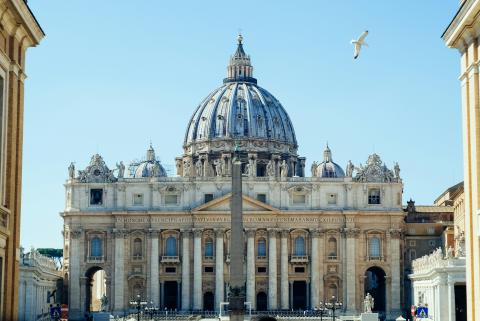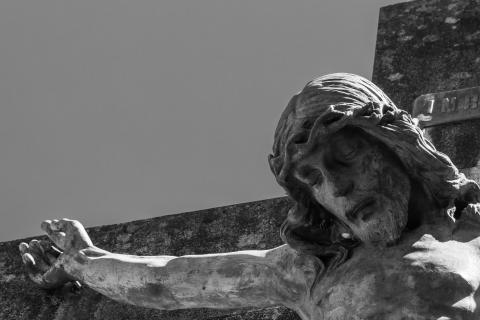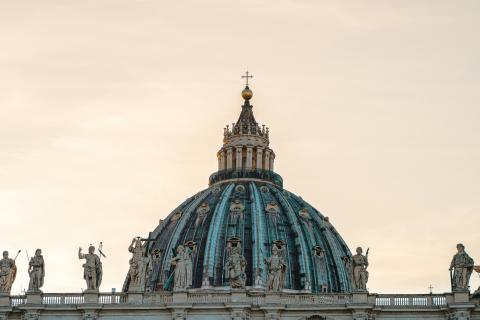
The New York Times published this piece a few days ago, in the wake of last week’s election. Titled “The Long Global Trail of Resentment Behind Trump’s Resurrection,” it’s a sophisticated tracing of the ways the “triumph of Western liberal democracy” since the fall of the Berlin Wall hasn’t necessarily resulted in the global unity one might have expected. Instead, the warning given decades ago by a top adviser to the reformist Soviet leader, Mikhail Gorbachev, as the Cold War wound down and their power was ebbing, has been made prescient: “We are going to do the most terrible thing to you,” he said, “We are going to deprive you of an enemy.”
His point was that a clear, “binary world of good and evil” had served for the West as a straightforward point of unity: it could identify itself as, if nothing else, against the evil social orders it was seeking to destroy. Without a target to be clearly set against, the West’s search for a new target to be set for has come up largely empty-handed – hence the divisive social fracture and disillusionment that, the article suggests, allowed for a campaign as blunt, polemical, and hot-blooded as Trump’s.
It's a matter that raises significant and complex political and international issues. But it’s also one that offers a good point of reflection for any Christian who’s part of any social group: “What is the basis of our communion?” we ought to ask ourselves, from the level of nation all the way down to the level of individual friendship.
For it’s true that human beings are made to be in fellowship with each other, but to secure it, they need to find some sort of cause for uniting. And very often, we don’t end up uniting on the basis of truth, goodness, and love. Instead, we find common ground on the basis of self-interest, self-protection, and resentment. And this happens in politics, sure, but it also happens in workplaces, friendships, families. We are often all too ready to establish deep communion for the wrong reasons – as people who aren’t like those other kinds of people; as people who don’t act or think in those outrageous ways. And this often happens not necessarily out of malice or ill-intent, but because of a lack of self-examination and intentioned care in relationship.
But the problem with these kinds of communions (aside from the ways they foster habits of minds and heart that put us in the way of vice rather than virtue) is that they tend to be flimsy. They need contingent and passing realities to stand – a common enemy of some kind – and that’s not a firm, abiding basis for common-mindedness. Such communities paper over quickly, as a result, and then they foster the disillusionment and inner division The New York Times suggests is happening on a grand scale, across the globe, presently.
So as the world remains in a huff of concern about what Trump’s presidency will mean for the United States, as well as for the whole of the globe, we might strive to resist feeding into the rhetoric that would encourage us to set up camps against one another. Instead, it’s worth letting this moment move us to take pause and reflect on what the communities we’re part of are for. We can ask ourselves this question: when I’m with my family, my colleagues, my partners in a given mission I serve, what do we tend to talk about most often, to think and dream about most of the time? Is it the Lord, the building up of his kingdom, of the hopes we have for the good of those we work with and alongside? Or is it something less exalted – how we square in relation to others, how we might be, even in subtle ways, counting on and looking for their limitations, shortcomings, or failures to give us our sense of who we are? After all, we depend upon our communities to become, fully, who we are, so it’s worth doing all that we can to foster union authentically, building bonds of true charity in the relationships we have, and seeking to establish the foundations of our communion with each other on realities that are the furthest thing from flimsy: the truths and plans of our good, everlasting God, who ultimately draws us into the first and best community, the life of the Holy Trinity itself.


